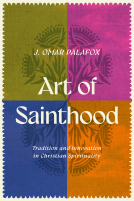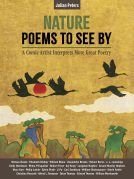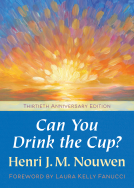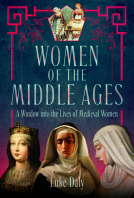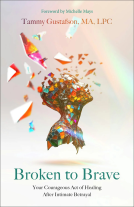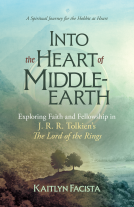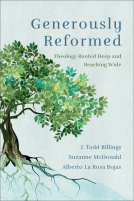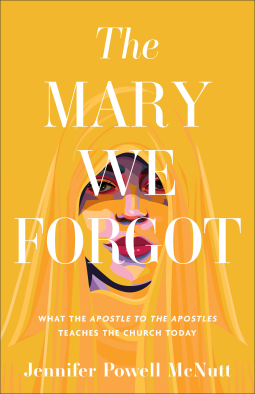
The Mary We Forgot
What the Apostle to the Apostles Teaches the Church Today
by Jennifer Powell McNutt
This title was previously available on NetGalley and is now archived.
Send NetGalley books directly to your Kindle or Kindle app
1
To read on a Kindle or Kindle app, please add kindle@netgalley.com as an approved email address to receive files in your Amazon account. Click here for step-by-step instructions.
2
Also find your Kindle email address within your Amazon account, and enter it here.
Pub Date 15 Oct 2024 | Archive Date 1 Nov 2024
Baker Academic & Brazos Press | Brazos Press
Talking about this book? Use #TheMaryWeForgot #NetGalley. More hashtag tips!
Description
Setting the Story Straight for the Mary Whom the Church Has Misunderstood
Mary Magdalene's life was transformed when she was healed by Christ and joined his ministry from Galilee to Jerusalem. The Gospels teach that she was also a witness at the cross and the first one sent by Christ to preach his resurrection. Yet her story is often confused, scandalized, and undervalued by the church.
In The Mary We Forgot, award-winning church historian and theologian Jennifer Powell McNutt unpacks Scripture and history to reveal the real Mary Magdalene: the first apostle of the good news and a model of discipleship for both men and women today.
Christians will learn from the disciple known as the "apostle to the apostles" how to embrace Jesus's calling to "go and tell" with faith and courage. They'll also be encouraged by the reminder that God calls ordinary, imperfect, and unexpected people to share the good news of Jesus Christ.
Advance Praise
“It is difficult to praise this book too highly. Jennifer Powell McNutt not only helps us distinguish between the various Marys of the New Testament, she also recovers the voice and example of Mary Magdalene for the church today—and, it must be noted, for men and women alike. Fascinating and accessible, this book is a must-read for anyone who preaches and teaches regularly, but it would also aid anyone who is interested in more deeply understanding the Scriptures. I commend this book to all who want to follow Jesus, especially those interested in the attention, dignity, and tasks of ministry that he gave (and gives) to women in the church. Highly recommended!”—Tish Harrison Warren, Anglican priest, former New York Times newsletter writer, and author of Liturgy of the Ordinary and Prayer in the Night
“Harlot. Sinner. Mystic. Wife. Mary Magdalene has been called many things throughout history. The fanciful story of prostitute-turned-saint makes for good drama, but what does Scripture really say about this Mary? McNutt rightly dwells on what the Gospels teach: her faith and deep devotion to Jesus. This book not only clarifies the woman we forgot but also helps us see more clearly the Messiah who sent her as first witness of the resurrection. McNutt is a gifted spiritual biographer. This was a delight to read.”—Nijay K. Gupta, professor of New Testament, Northern Seminary; author of Tell Her Story
“With a historian’s attention to detail and a theologian’s love for both the biblical text and its context, Jennifer Powell McNutt brings to life the ‘forgotten’ Mary and, in so doing, reminds us that such figures in the Bible were living, breathing people of flesh and blood who have things to teach us today. This is a rich and provocative book that brings the larger biblical narrative to life again.”—Karen Swallow Prior, author of The Evangelical Imagination: How Stories, Images, and Metaphors Created a Culture in Crisis
“McNutt leaves no stone unturned in her quest for the real Mary Magdalene. As a church historian with biblical and theological training, she disentangles Mary Magdalene’s story from the other Marys and unnamed women of the New Testament, work she is uniquely qualified to do. As someone with pastoral experience, McNutt helps us see why Mary’s story is critically important for the church today. This book was a joy to read!”—Carmen Joy Imes, associate professor of Old Testament, Talbot School of Theology; author of Being God’s Image and Bearing God’s Name
“It would be hard for someone to prepare the reader for all the moments of surprise, inspiration, and challenge that await them in the pages of The Mary We Forgot. . . . I quickly found myself humbled as chapter after chapter taught me much about Mary that I did not know. . . . By helping us find the real Mary, this book does what Mary’s own story does. It points us to Jesus, the King and Savior who healed her and changed her life.”—Esau McCaulley (from the foreword)
Available Editions
| EDITION | Other Format |
| ISBN | 9781587436178 |
| PRICE | $19.99 (USD) |
| PAGES | 208 |
Available on NetGalley
Average rating from 21 members
Featured Reviews
If I were to suddenly ask you to tell me about the biblical Mary, there's a pretty good chance that unless you're a pastor, seminary graduate, or theologian that you'd likely fumble around.
If we're being honest, even if you're a pastor, seminary graduate, or theologian there's a chance you'd fumble around with the question.
You'd struggle to recall specifics (as I do at times). You'd confuse your Marys (and yes, there's more than one). You might just shrug your shoulders and say "I don't know."
Award-winning church historian and theologian Jennifer Powell McNutt unpacks it for us in "The Mary We Forgot: What the Apostle to the Apostles Teaches the Church Today," a remarkable effort about a woman whose story is often overlooked, confused, or scandalized by the church.
For some, the very basics of Mary are what's remembered - she was among the last at the cross and the first at the empty tomb?
However, McNutt goes much further to reveal the Mary Magdalene, and yes we're talking about Mary Magdalene here, as a model of discipleship for all Christians today. While lots of men like to forget about and/or minimize the gifts of women, Mary Magdalene is a powerful reminder that to be a Christian is to acknowledge her impact.
McNutt takes readers on a journey through Southern France - a journey tracing the path remembered by some church traditions as where Mary Magdalene spread the gospel. Known as the "apostle to the apostles," Mary teaches us how to embrace Jesus's calling to "go and tell" with faith and courage. At a time in the world when women were, in fact, often considered secondary (not much has changed), McNutt illustrates how God uses, and Jesus embraced, those who were ordinary, imperfect, and unexpected to share the good news.
Starting from the beginning in a way, McNutt helps us clearly distinguish between the various New Testament Marys. She does so in a way that is engaging, passionate, informative, and crystal clear. McNutt approaches "The Mary We Forgot" as both theologian and pastor, an approach that reminds me at times of Moltmann or Volf in the ability to take complexity and make it understandable.
In other words, I learned so much here that I found myself researching further almost immediately after finishing "The Mary We Forgot."
McNutt doesn't avoid the more challenging aspects of Mary. Instead, she embraces them and dives deeply into the myths and truths and scriptural evidence. "The Mary We Forgot" is extensively sourced (over 1/3 of the book) and both accessible yet academically sound. She humanizes Mary so richly so vividly that at times I felt as if I were in the room with her.
Perhaps, most of all, McNutt beautifully illustrates why all of this is important to both church history and the church today. I not only learned, but I was deeply moved by "The Mary We Forgot" and this Mary that I not only had, in some ways, forgotten but, in other ways, I never really knew.
 Reviewer 1281795
Reviewer 1281795
This is the most comprehensive resource I have ever found on Mary Magdalene, and helpfully engaged with Catholic, Protestant, Orthodox, and even Gnostic perspectives to help guide our understanding of Mary's place in Christian thought.
(I received a free digital copy of this book from NetGalley in exchange for an honest review)
 Christina O, Librarian
Christina O, Librarian
This book showed up at the perfect time for me. Like many, I’ve been watching and enjoying “The Chosen”, and wondering what church history has to say about Mary Magdalene. Unfortunately, church history distorted Mary Magdalene’s story by conflating her story with other Marys. And then they conflated the story about Mary (Lazarus’s sister) with the sinful women (Luke 7) anointing Jesus. And then they brought forward the idea that Mary Magdalene had 7 demons because she was a prostitute… because she was called a sinful woman…which only kinda (not really) works if you conflate all those stories. Before we can get into who Mary Magdalene is, Dr. Jennifer Powell McNutt has to peel back all the layers of assumptions that have been laid over her story.
The book is a quick read and its writing style is very accessible. A lot of the book is focusing on who Mary Magdalene is not, and that is an interesting overview of church history. It also shows how women in the bible were written about in the medieval period and the reformation by church fathers and mothers. In the last couple chapters Dr. Powell McNutt features her argument for how significant Mary Magdalene is in the gospel. It’s important that we remember her today as not only a faithful disciple of Jesus during his ministry, not as only a woman who witnessed his death on the cross, but as an apostle sent by Jesus to proclaim his resurrection to the other apostles. She is an example of a faithful follower of Jesus for all Christians. And if this is true, what does that mean for our churches today? The author poses the question, if Mary Magdalene came to the church to proclaim the good news, would we listen? It is a question worth pondering.
“The Mary We Forgot” is a good book for history enthusiasts, fans of The Chosen, and people contemplating women’s place in the church. Whether you’ve studied women in the Bible, or are just getting started, you should pick up this book.
 Yakub T, Educator
Yakub T, Educator
Jennifer introduces to us a new genre to explore about Mary Magdalene, which is introducing the real Mary Magdalene as a model of discipleship for all Christians today, men and women. We all know about her role in Jesus ministry is really outstanding. Hopefully we as Christian can model her, too.
A whole book about Mary Magdalene? Is there really all that much to be said about her?
Dr. Jennifer Powell McNutt's answer with her latest, The Mary we Forgot: What the Apostle to the Apostles Teaches the Church Today is a resounding "yes!" She begins by looking at who Mary is thought to be and how she is seen in culture today—often as little more than a former prostitute who got saved. Because there are so many Marys in Scripture, she also tends to get blurred and blended together with other Marys until she's kind of just a rather two dimensional devoted woman follower of Jesus in the background of various Gospel scenes.
McNutt's contention with this book is that this portrait not only does a disservice to Mary Magdalene, but it also does a disservice to us as readers and receivers of her story. As the subtitle suggests, her position and her witness is actually really significant—a significance we miss when we sideline her and flatten her into "just a former prostitute."
The overall aim of the book is to resuscitate her, to revive her within the scope of our theology and church practice such that she holds again the position of honor as "the Apostle to the Apostles." McNutt does this by first examining what the various biblical texts say about her and then moving into how the church's interpreters handled those passages. She looks into the messy history of how Mary got conflated with other women in the Gospels, and she even recounts a story of her trip to the south of France where apparently Mary Magdalene is held in high esteem. She rounds out the book by reflecting theologically on this resuscitated portrait and what it implies. Calling her "The Apostle to the Apostles" will certainly raise hackles for some, and the final section of the book offers the justification for such a title.
The book sometimes felt a bit meandering to me—it was interesting to hear about her veneration in southern France but not particularly integral to the book's argument—but overall I'm glad I read it!
DISCLAIMER: I received a copy of this book from the publisher for the purpose of a fair, unbiased review.
 Reviewer 1154977
Reviewer 1154977
"The Mary We Forgot" by Jennifer Powell McNutt
5🌟/5🌟
I enjoyed this book about Mary Magdalene. Like many others, I've been challenged to read and learn about the early followers of Jesus because of the show "The Chosen." Seeing women follow Jesus on screen made me more interested to learn what it may have been like to be an early follower of Jesus, especially as a woman.
So, when I saw this book about Mary Magdalene, I knew it would be a must-read for me. Thinking of Mary Magdalene as "an apostle to the apostles" helped me see how often the church historically undervalues the ministry of women and how that often carries into church ministry today. The gospels are filled with stories of faithful women following Jesus and serving him. Too often, the faithful witness of women has been diminished, ignored, or misrepresented in the church. Realizing Mary was "as apostle to the apostles" has been liberating for me. Of course, Jesus would pick women to be the first to proclaim his resurrection to the other disciples! It's just the sort of thing Jesus would do! Jesus values women and includes them in all aspects of his ministry.
I was aware that Mary Magdalene has been confused with other women in the four gospels throughout church history. Learning about extra-biblical sources that discuss the life of Mary and her ministry, be it artwork, fables, or writings was interesting.
My favorite pearl from this book is learning Magdalene may have been a nickname or pun because the word Magdala means 'the tower' in Aramaic. The idea that Mary was given the name Magdala as an "honorific" because of her strong, towering faith is extremely inspiring to me.
I absolutely loved chapter 8, "The First Apostle Chosen by Christ" where Jennifer writes, "In an era of dechurching and faith deconstruction, Mary Magdalene can serve as a model of steady faith in Christ, even when our churches fail us and hurt us. By focusing on following Christ, she was able to invest in the community of believers during times of crisis and hardship. She was a tower of strength after all, which signals her importance in the group. Her strong faith is a central part of her legacy and, if remembered, could be an inspiration for our churches today as a model of faithful discipleship."
My one small complaint, in the book the author says The Chosen's portrayal of Mary Magdalene is associated with prostitution. This isn't accurate. In the show's portrayal, it is implied she is a victim of sexual assault, not prostitution. Specifically, in "The Chosen" Mary is demon possessed and a victim of sexual assault in Season 1, Episode 1. In Season 2, Episode 6, it is portrayed that Mary struggled with alcohol abuse and gambling.
The Mary We Forgot is an intriguing book that unwraps the many "Mary's" of the bible and sheds light to who Mary Magdalene really was during this time. Honored with being labeled "The Apostle to the Apostles", the Mary who faithfully followed after Christ has a very deep and inviting story. She is known to follow His command to "Go and Tell" and in her example, we can see how we, as Christians, need to follow suit. This book is heavily resourced, and you can recognize that Dr. McNutt spent a lot of time thoroughly researching the various "Mary's" in the bible, and clarifying the amazing qualities found within Mary Magdalene. The information in this book is astounding and I learned a lot. I am grateful for the attention to detail put into the content, and when we read a question posed by the author, "if Mary Magdalene came to the church to proclaim the good news, would we listen?", it really gives us a chance to reflect on our own views, beliefs, and convictions as followers of Christ. A very thought provoking and wonderful read to challenge us in our walk of obedience with God. Will we Go and Tell? Thank you for NetGalley and Brazos Press for the Advanced Review copy of this amazing book!
The MARY WE FORGOT by Jennifer Powell McNutt is another solid offering from Brazos Press, of the Baker Publishing Group. The question the author investigates is who is the Mary Magdalene of Scripture and a confusing tradition and what can she mean for us today. The book is an interesting mix of solid research, some pertinent personal experience, and a kerygmatic plea for women’s voices to be heard equally with men’s voices in the church.
First, the solid research. McNutt brings academic rigor to searching through various Biblical Marys and their depiction in Western and East Orthodox, Byzantine traditions and far flung localities. I’ve wondered myself if Mary Magdalene was Lazarus’ sister, Jesus’ lover, or a fallen woman. The bottom line for McNutt is no, none of the above. She was, however, healed from demons; she helped support Jesus’ ministry financially; and most importantly, she was the first to discover his empty tomb.
Second, the personal experience. McNutt is a warm, convincing presence in the book. I especially enjoyed her explorations in France to discover sites where Mary Magdalene’s memory is preserved. I also visited Vézelay Abbey and tried unsuccessfully to explain to my traveling companions just who this saint was. McNutt clears up why, as the evangelist to France, she is so revered there.
Third, the kerygmatic plea for women’s voices. Much of the book is in service to the idea that Mary Magdalene received the teachings of Jesus directly and was commissioned to pass on to the other apostles the startling news of the empty tomb. Throughout his ministry, Jesus surrounded himself with both men and women. Therefore, and I will quote: “When the church sees women as Jesus saw women, it will begin to embrace the colaboring of women in the church.” That we are still arguing this obvious point is disheartening to me, so much so that I almost held it against the book. But no, McNutt is providing a service in carefully constructing her argument, and that the argument needs to be made should not be held against her!
With its extensive notes section, the book would satisfy both academic and serious lay readers, provided they have a vested interest in Christianity. In other words, for the right reader, it is a great resource, but I think the general reader would wonder at all the twists and turns of a convoluted history. And for the reader who assumes women’s voices are needed in church leadership, this book might sometimes be disheartening, or infuriating.
With thanks to NetGalley and Brazos Press for an ARC of this book in exchange for an honest review.
 Media/Journalist 1170014
Media/Journalist 1170014
One of my signature rants is about how there is no biblical or historical evidence that Mary Magdalene was a prostitute and people are eager to paint her as one because they’re uncomfortable with a female apostle. (Yes, I am LOADS of fun at parties.) So I was obviously so excited to learn about this book. The author, an academic and minister, debunks myths about the apostle to the apostles while tracing them back to their roots. She also explores what Catholic and Orthodox church tradition have to say about bout Mary Magdalene and her life after the cross, and the ways in which Catholic, Orthodox and Protestant teachings about her differ.
One of my favourite points that the author makes is that Mary Magdalene’s story shows us that the church should welcome female preachers. After all, the very first person to share the good news of the resurrection was a woman!
Overall, I’m a huge fan of this book and will be reading more from this author.
Excellent!! Although this is a fairly "academic" book on the life and theology of the place of Mary Magdalene in the life and ministry of Jesus, the tone of the book made it a pleasure to read. In addition to her fine scholarship, the author did a terrific job of seamlessly adding in personal vignettes, including travels in France with her family.
I learned a lot from this book, and it got me to thinking as well (my highest compliment). This would be a terrific book for anyone serious about ministry and spirituality, as well a a great choice for church book groups, Bible study groups, or Christian formation groups.
Highly recommended.
 Rachael N, Reviewer
Rachael N, Reviewer
Thanks to NetGalley and the publisher for the e-ARC. It’s such a thoroughly researched, engaging and life giving look at the life and importance of Mary Magdalene in life and faith.
 Lisa S, Reviewer
Lisa S, Reviewer
How much do you know about Mary Magdalene? Denigrated as a prostitute and revered as the first witness to Christ’s resurrection the next, Mary has been a complicated character in Church history. This lovely book, which I will read again, is a comprehensive but intimate look at Mary’s importance to Christianity and her example to us. The part that I enjoyed best is where the author conducts a personal search for Mary in France, and undertakes a forensic study of the myths surrounding her.
Many religious books are quite dull and even ‘preachy’ bit this one is very accessable and easy to read.
I received a free ebook from NetGalley in return for an honest review.
4 stars = Great! Might re-read.
As a non-academic, I enjoyed the fact that this book is written in such a conversational tone. It's easy to read and follow. There are some personal tie-ins from the author to keep things from feeling too academic while at the same time this is incredibly well-researched. I enjoyed this thorough and inspiring look at Mary Magdalene.
That said, the first section where the author digs into how Mary Magdalene's story has been lost across history as she has been conflated with other biblical characters was a lot. I think if I was a scholar, I would have loved this thorough exploration, but as a casual reader, this felt like "selling past the close" and that made it hard to keep my forward momentum into the other areas of exploration covered by the book..
That said, I think both scholars and casual readers can get a lot from this book - just know that the book is front-loaded on the issue of conflation.
I also hope official versions of the book are more user-friendly than the ARC when it comes to end notes and tables - I am eager to see this one in person to see how those sections turned out in print.
What a powerful exploration of the Biblical character of Mary. I've never read such a well-researched book on Mary and it really opened my eyes to how much more God used Mary in the story of Jesus. This is one I'll have to return back to as I took many notes.
I really wanted to love this book, but I found myself underwhelmed. I think that's largely because I was already familiar with the vast majority of what McNutt covers. Indeed, she most held my interest while describing Mary Magdalene's position in the Orthodox Church. I wish there had been more detail given there and more about the centuries between Gregory the. Great and the Reformers. And the paucity of information about Mary's perception between the Reformers and the 21st century was rather frustrating. I guess I was hoping for a very different book from the one that McNutt has actually written. What she has written is fine, it's just not the real deep dive I mistakenly expected.
This checked all my nerdy little boxes.
Historical?
Scriptural?
Feminist?
I loved her walk through both Christian history and scripture and the calling out of misogyny in faith spaces (seriously, you’re gonna tell me to GO HOME, when Jesus says GO? Fuck you, John McArthur) all wrapped up in some FANTASTIC, ENGAGING WRITING.
I’m not 100% on board with her (seeming) dismissiveness of faith de/reconstruction – as if we’re not digging deeper BECAUSE of our steady faith – but otherwise, I’d suggest this book to anyone interested in a deep dive into one of the (few) named women of the Bible.
Jennifer Powell McNutt offers a thorough, detailed examination of Mary Magdalene in THE MARY WE FORGOT, revealing how she has often been confused for other biblical Marys, so that the various stories are inaccurately conflated into one individual. McNutt examines the Gospels and lays out how these confusions began and, in some instances, continue to this day.
"The Gospels invite us to remember her in three critical ways: as being healed from demons, as a financial supporter of Jesus's ministry, and as the first apostle called and sent by Jesus at the resurrection."
I found McNutt's text a deep dive into Mary Magdalene's life and learned extensively; particularly, I had been previously unaware of her significant contributions in France. This is a strong example of the value of scholarship in correcting misinterpretations.
(Thank you to Baker Academic & Brazos Press for providing this book for review consideration via NetGalley. All opinions are my own.)
Readers who liked this book also liked:
Michaela Renee Johnson
Nonfiction (Adult), Parenting, Families, Relationships, Self-Help
